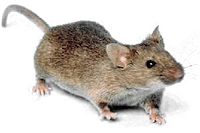
Photo from wikipedia
Chronic consumption of Western‐type diet (WD) induces cardiac structural and functional abnormalities. Previously, we have shown that WD consumption in male ATM (ataxia‐telangiectasia mutated kinase) deficient mice associates with accelerated… Click to show full abstract
Chronic consumption of Western‐type diet (WD) induces cardiac structural and functional abnormalities. Previously, we have shown that WD consumption in male ATM (ataxia‐telangiectasia mutated kinase) deficient mice associates with accelerated body weight (BW) gain, cardiac systolic dysfunction with increased preload, and exacerbation of hypertrophy, apoptosis, and inflammation. This study investigated the role of ATM deficiency in WD‐induced changes in functional and biochemical parameters of the heart in female mice. Six‐week‐old wild‐type (WT) and ATM heterozygous knockout (hKO) female mice were placed on WD or NC (normal chow) for 14 weeks. BW gain, fat accumulation, and cardiac functional and biochemical parameters were measured 14 weeks post‐WD. WD‐induced subcutaneous and total fat contents normalized to body weight were higher in WT‐WD versus hKO‐WD. Heart function measured using echocardiography revealed decreased percent fractional shortening and ejection fraction, and increased LV end systolic diameter and volume in WT‐WD versus WT‐NC. These functional parameters remained unchanged in hKO‐WD versus hKO‐NC. Myocardial fibrosis, myocyte hypertrophy, and apoptosis were higher in WT‐WD versus WT‐NC. However, apoptosis was significantly lower and hypertrophy was significantly higher in hKO‐WD versus WT‐WD. MMP‐9 and Bax expression, and Akt activation were higher in WT‐WD versus WT‐NC. PARP‐1 (full‐length) expression and mTOR activation were lower in WT‐WD versus hKO‐WD. Thus, ATM deficiency in female mice attenuates fat weight gain, preserves heart function, and associates with decreased cardiac cell apoptosis in response to WD.
Journal Title: Physiological Reports
Year Published: 2022
Link to full text (if available)
Share on Social Media: Sign Up to like & get
recommendations!